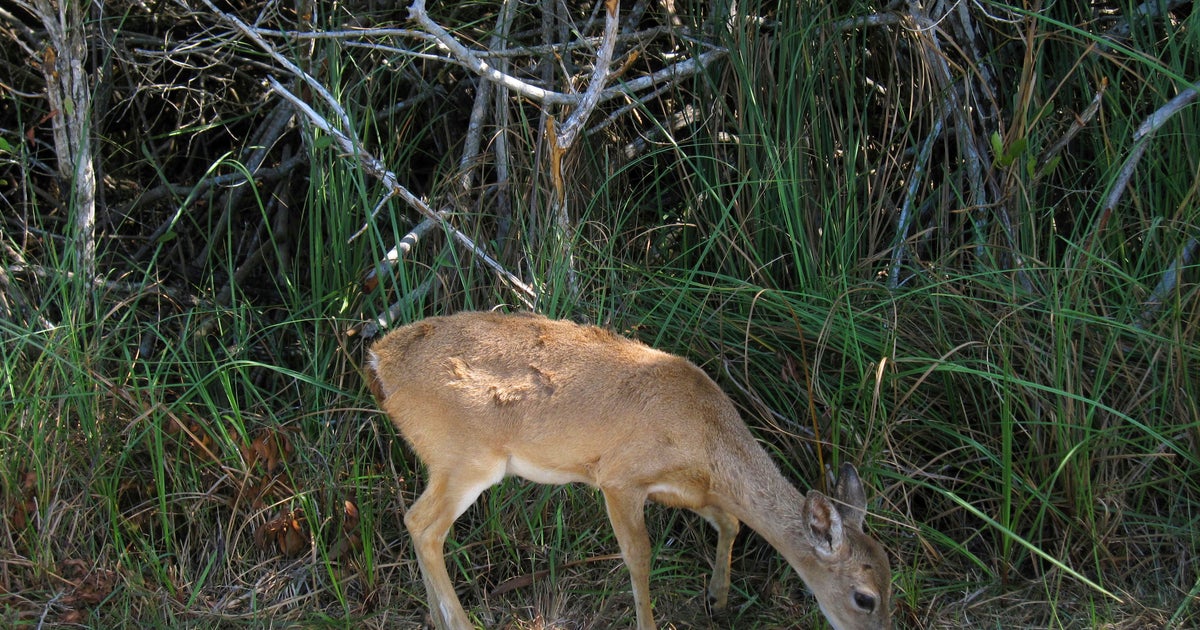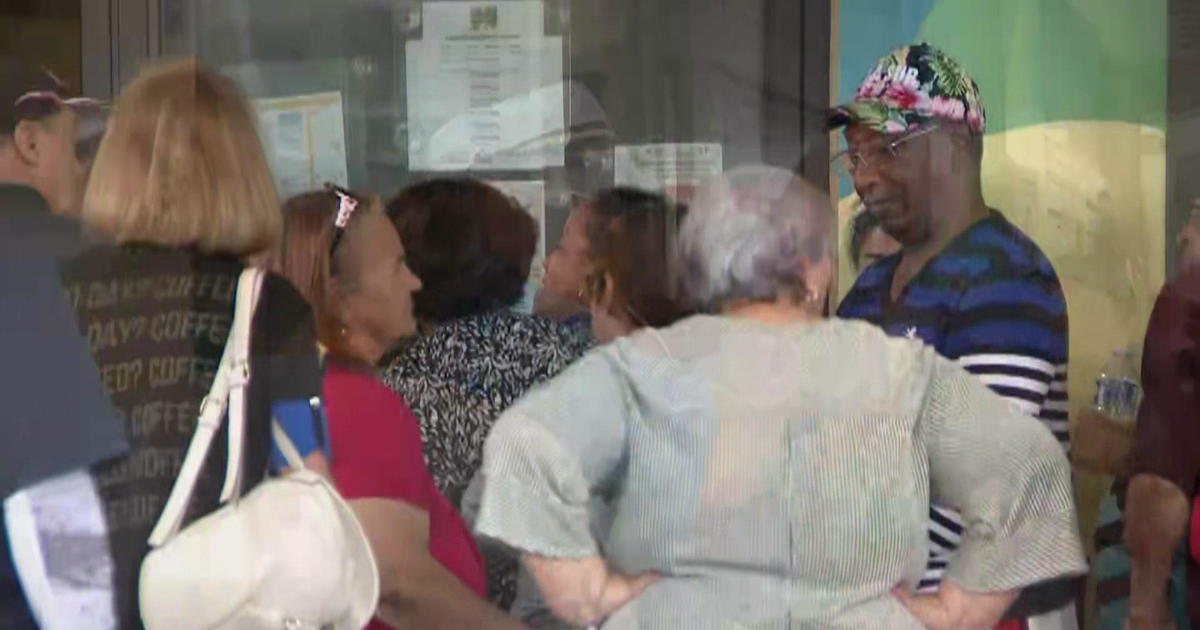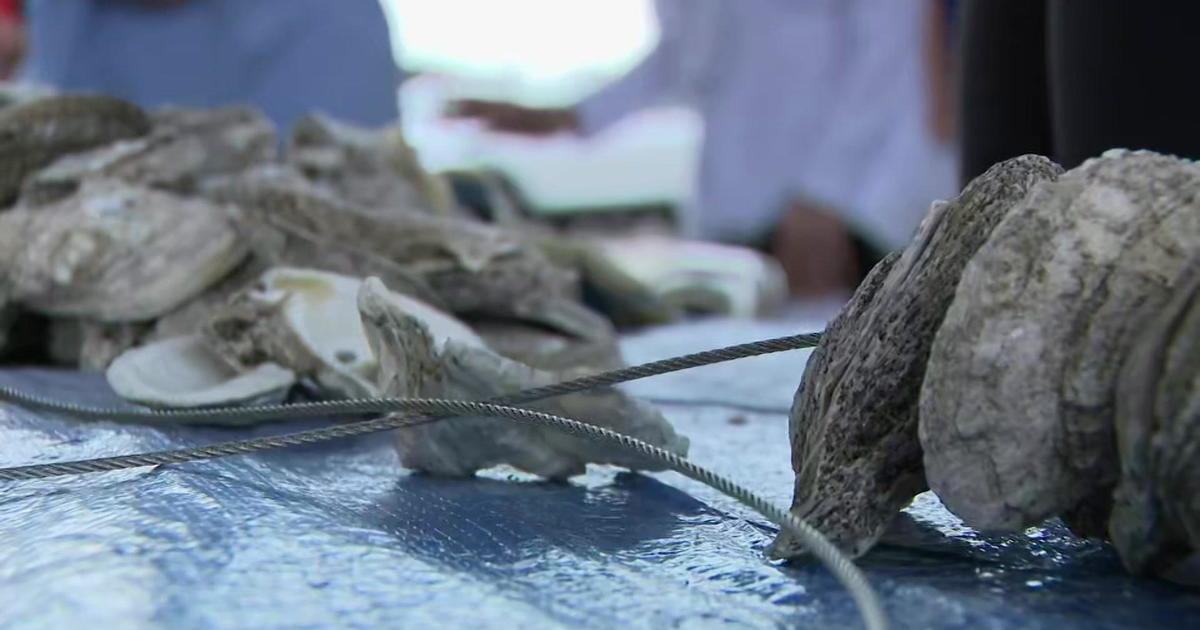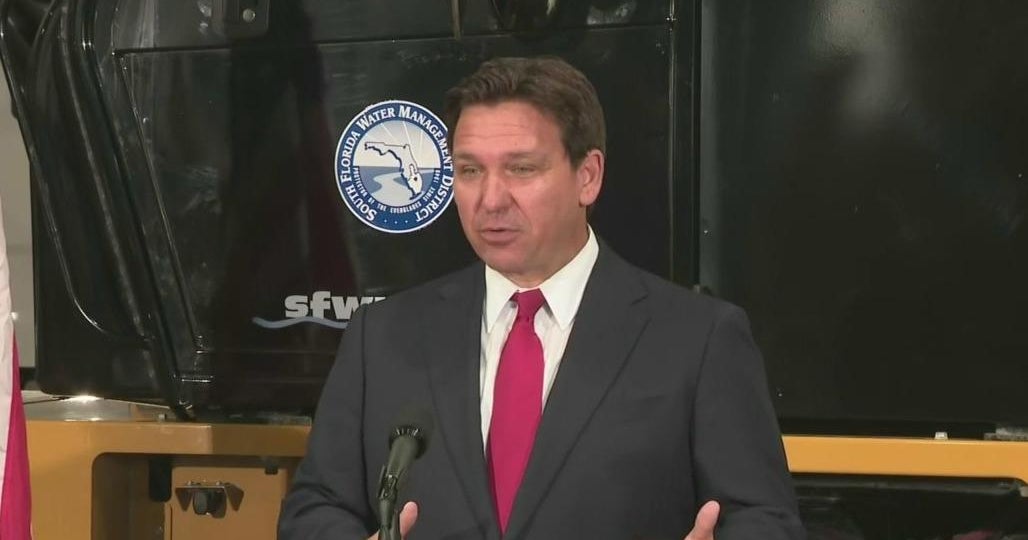With Hemp Now Legal In Florida, Many Look To Cash In On CBD Oil
MIAMI (CBSMiami) – Chances are you have heard about CBD oil.
You will find it in stores, on reality TV, and lately even restaurants. Many people claim it offers relief for everything from anxiety to pain.
Up until recently, CBD was illegal in Florida but that's changing as legislators change the law to help Florida cash in on the CBD craze.
Whether you are buying cosmetics, supplements, or just looking for tea, CBD oil is showing up just about everywhere.
Arby Barroso, co-founder of Green Roads, smiles when he talks about it.
"We have about 7,000 retail mom and pop stores, somewhere around 1,500 doctors, and another 1,500 pharmacies," he said.
Barroso's 6-year-old startup in Davie produces many of the CBD products you see in Florida stores.
"We started in a 5x5 room," Barroso said. "Laura working 90 hours a week. In four years we are now moving to a 40,000 square foot facility, 25 employees and growing. So it's exciting times."
Green Roads is an example of a cannabis boom that is coming into Florida. He can barely keep up.
Each day they process between a thousand to fifteen hundred orders. With many products selling over a $100 a bottle, it's big money.
Green Roads says they made $40 million dollars last year. Barroso expects to double it this year.
"I think it isn't a fad and I think it is going to grow into something bigger than it is right now," he said.
Chances are you have heard of people using CBD oil to treat seizures, anxiety, pain, muscle tension, depression, your pet and a host of other items.
While everyone is looking for a cure to their ailment what is really fueling the CBD oil craze is money.
CBD oil comes from cannabis plants, also known as marijuana or hemp. Both Marijuana and hemp look like the exact same plant.
In fact, if you saw both side by side you could not tell which is which.
The only difference is marijuana contains illegal mind-altering chemicals, also known as THC. Hemp has the THC genetically removed.
Industrial hemp can be used to make CBD oil, textiles for clothes, grain to eat, the possibilities are endless. The Federal government, lobbied by the cannabis industry, legalized hemp last year seeing the potential to revitalize the farming industry.
This month Florida legislators legalized hemp as well, in hopes of generating a new crop for the state. Some expect hemp to sell for ten times what an orange goes for. Florida's Agricultural commissioner is calling Hemp a miracle crop for the state.
Before farmers can start counting their money, there are some serious concerns.
Dr. Zachery Brym is an agroecologist with the University of Florida's Tropical Research and Education Center.
He took us out into a field in South Miami-Dade County to show us something most of us have not seen in our lifetime.
"This is the first legal outdoor planting of industrial hemp in the state of Florida in over 70 years," Dr. Brym said with a smile.
In April, the University of Florida kicked off a study on hemp using a special permit.
Dr. Brym gave CBS4's David Sutta a tour of the first farm field in the state where the plants are locked in.
"I think if the public saw something that looks like marijuana in an open field you might get a little interest in coming and taking some. But that's very disruptive to our research," Brym explained.
His hemp plants have been in the ground a few weeks. They are using seeds from around the world to see which ones can thrive in a hot humid summer.
When the plants do come up they should be hemp. But as temperatures rise they expect the plants to become stressed, which could in turn produce THC.
Brym explained, "One of the consequences of hemp plants being stressed is that high THC level. Those plants going hot which would redefine them from industrial hemp to marijuana, which would be an illegal operation whether you had a permit or not."
Assuming they figure out how to keep hemp stressing out and becoming marijuana, there is also the concern these plants are wildly invasive, meaning the can spread quickly.
"We ultimately want to make sure that we can co-exist," Brym said.
Back in a green house, Dr. Will Wadlington explains what they are worried about.
Wadlington is an agronomist with the University of Florida's Tropical Research and Education Center, and is working under Dr. Brym's project.
"We wanted to abuse the plants to see how they would handle it. So we put them in a hot green house. We actually didn't use the air conditioner," Dr. Wadlington said. "The hemp plants left on their own didn't get very far. He pointed to withering plants that grew maybe 4 inches before budding. It's going to be pretty useless. If all your plants got this tall and flowered it's going to be an issue."
But before they died they began reproducing.
Back in the field, Brym explained the state may have some difficult choices to make in the future.
"If a farmer makes a whole lot of money on hemp and then all of that money is ultimate equal to all of the money that we would have to spend on our natural areas to manage for hemp invasion then from a state level, from a system level, it's sort of a null set," he said.
Brym's research is likely years from conclusion. In the meantime the enthusiasm for CBD continues to grow.
Barroso is expanding to a new facility and ramping up production.
"I don't think we will see an opportunity like this again in our lifetime," he said. I don't think our kids will see another opportunity like this in their lifetime."
It is unclear if Florida's agriculture community will wait for the research or move ahead with the businesses of hemp and CBD oil.
This summer the state will create a rules plan for hemp farms. These will be guidelines for who can grow, how to grow, and what will be required for monitoring everything. A number of farmers have already cleared plots, eager to get started.
While hemp is new to Florida it is not new to the United States.
Nearly two dozen states are already in the process or about to produce hemp as a crop.
There is a lot of optimism about Florida because of the potential to grow more often than the rest of the country. Cannabis needs warm temperatures to grow. In Kentucky it takes 120 days to grow and they harvest just one time a year.
Florida farmers believe they could harvest two to three times a year. The potential to produce more product and make more money is peaking interest.



